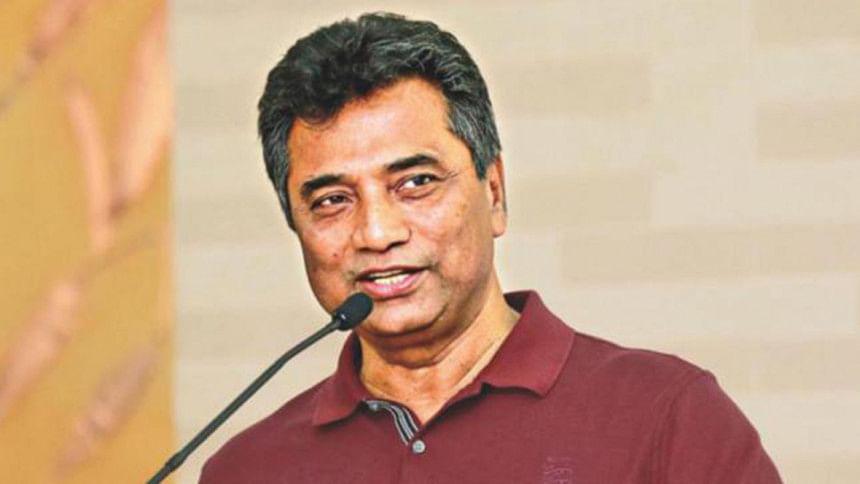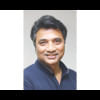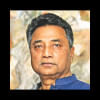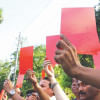Tribute to Annisul Huq: Demise of a changemaker

He was at his prime. Dynamic and full of energy, he was a man on a mission. Prime Minister Sheikh Hasina's surprising and insightful decision to nominate a nonparty man for the vital post of one of the two mayors of the country's capital turned out to be a brilliant one. Given the opportunity, he was determined to prove that he was a worthy choice.
“Give me a few years and I will change this city” was his constant message to anybody he could find willing to listen to his plans. At times, he sounded unrealistically ambitious, but it was inspiring to listen to him. At least here was a man thinking about the city that was becoming increasingly difficult to live in.
“As long as the prime minister approves of what I do, I don't care how many enemies I make,” he said. And yes, he did make a lot of enemies who could be the ones responsible for spreading the totally baseless, fictitious and unkind rumours and online stories about his illness as he lay in near coma condition in a London hospital. One can only imagine the pain it must have caused the family already devastated by the terrible turn of events.
Within weeks of his election, he rid Dhaka North of its obnoxious bill boards that sprang up in every nook and corner of every important intersection creating a visual monstrosity that destroyed whatever charm that was left of Dhaka. His clearing of parts of the Satrasta intersection in Tejgaon area of the city from the clutches of truck owners exemplifies the boldness with which he approached his task. Every inch of Dhaka city translates into some form of monetary gain, and occupying a large chunk of the roads right in the city centre must have meant millions to those who occupied it. To clear these public roads, he had to face militant resistance from the vested quarters including armed mobs that besieged him, and had to be rescued by the police on one occasion. His opening up of Gabtoli Bus Terminal that caused hours of traffic delay while entering the city from Savar was another remarkable success.
Garbage disposal, a job that was neglected for decades, proved far more complex than he had bargained for. To his horror, he discovered that there did not exist any disposal centre where garbage collected from a particular locality could be gathered for final disposal. He spent months lobbying relevant ministries and local bodies to identify sites, allocate land and build garbage collection centres. Anyone having an iota of knowledge about land allocation in Bangladesh, especially in Dhaka city, would know what a herculean task he accomplished. Much of this work has been completed, and it stands as yet another example of the dynamism of this mayor-in-a-hurry.
I feel certain that the attractive name “Dhaka Chaka” given to the special bus service within Gulshan and Banani and the adjacent area originated in his creative mind.
His achievements had a long history. Beginning as a small garment manufacturer in mid-80s, he soon became a major player in the sector and subsequently got elected to its apex body, the BGMEA. This was followed by his becoming the president of the FBCCI and then of the Saarc chamber. In all these positions, he showed extraordinary drive and leadership.
He had a particular fascination for television where he made quite a name for himself as a presenter. His most successful shows consisted of comparing the famous pre-election question-answer programmes of leaders of both the AL and the BNP before the 1996 elections and the subsequent “Face the People” programme of Prime Minister Sheikh Hasina during the early part of her 1996-2001 tenure.
Both these programmes exhibited Annisul Huq's talent as a host and TV personality.
Nobody could ignore his presence in any gathering. Ever boisterous and always engaging and friendly. In the rare case anyone missed seeing him, he could, however, never have missed hearing his loud and booming voice. He seemed like a person with almost unending source of energy and indomitable spirit to do something. His qualities were infectious and one could not help but be affected by his persuasive qualities to join hands to change the status quo.
He lived a good life. He had a beautiful home made more so by Rubana whose artistic qualities Annis admired. He was extremely proud of his wife's business acumen and intellectual qualities. Her columns in this paper he would proudly forward to people whose opinion he valued. Sometimes he would call me and say, “Did you read Rubana's column today?” He would often say that when Rubana would finish her novel, it would surely go on to win the Booker Prize.
His sudden illness shocked the nation and it took us all a while to truly grasp the gravity of his malady. When we were in London in November, my wife, Shaheen, and I went to see Annis at the Wellington Hospital. A tearful Rubana -- in many ways Annis' real source of strength and confidence -- sadly greeted us and told us the story of how he fell ill and what the prognosis was. She took us to the second-floor ICU room and allowed us to see him from outside the open door. She shouted out our names and tried to nudge him to some sort of response, but to no avail.
As I looked at Annis, with all those tubes and machines that kept him going, I imagined him to suddenly sit up, and say: “Ha ha, kamon apnader shobaikey ghabrey dilam. Amar to kuchuii hoy nai” (Oh, how I have fooled you all, I am just fine). This was his usual way to make light of the severest of tasks he faced and the crises that came along in his life. How I wish he had really made a fool of us all and that nothing had happened to him.
Seeing him lying helpless, I couldn't help thinking how fragile life is and how, within minutes, it can change most dramatically, and forever.

 For all latest news, follow The Daily Star's Google News channel.
For all latest news, follow The Daily Star's Google News channel. 







Comments